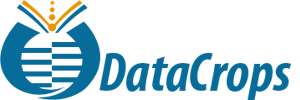DataCrops is a powerful web scraping and data extraction tool designed to harvest valuable information from websites. In today’s data-driven world, businesses rely on accurate and up-to-date data to make informed decisions, and DataCrops plays a pivotal role in this process. This article explores what DataCrops is used for, how it works, and the indispensable role that proxy servers, such as those provided by OneProxy, play in enhancing its capabilities.
What is DataCrops Used for and How Does it Work?
DataCrops is utilized for a wide range of applications across various industries. It excels in:
-
E-commerce Price Monitoring: DataCrops enables businesses to monitor and track prices of products across multiple e-commerce platforms, helping them stay competitive and optimize their pricing strategies.
-
Market Research: Researchers can leverage DataCrops to collect market data, including consumer sentiment, product reviews, and competitor information, to gain insights and make data-driven decisions.
-
Lead Generation: For B2B companies, DataCrops can scrape websites and directories to generate leads, facilitating targeted marketing and sales efforts.
-
Content Aggregation: News outlets and content platforms can use DataCrops to aggregate news articles, blog posts, and other content from various sources, creating a comprehensive and timely news feed.
-
Real Estate and Property Data: DataCrops can extract data on property listings, prices, and market trends, aiding real estate professionals in making informed investments.
DataCrops operates by sending HTTP requests to target websites, retrieving the desired data, and then parsing and structuring it into a usable format. It utilizes web scraping techniques to navigate websites, interact with forms, and extract specific data elements, such as text, images, or prices.
Why Do You Need a Proxy for DataCrops?
While DataCrops is a versatile and efficient data extraction tool, using it without a proxy server can pose challenges and limitations. Here’s why having a proxy is crucial for DataCrops users:
-
IP Blocking and Rate Limiting: Many websites employ measures to prevent web scraping, such as IP blocking and rate limiting. Without a proxy, repeated requests from a single IP address can trigger these protections, hindering data extraction efforts.
-
Geo-Restrictions: Some websites restrict access to users from specific geographic locations. A proxy server allows DataCrops users to access websites from different regions, overcoming geo-restrictions and accessing region-specific data.
-
Anonymity and Privacy: Proxy servers provide anonymity by masking the user’s real IP address. This ensures that the web scraping activities remain discreet and protect user privacy.
Advantages of Using a Proxy with DataCrops
Integrating proxy servers into DataCrops brings forth several advantages:
| Advantages of Using Proxies with DataCrops |
|---|
| 1. Enhanced Privacy: Proxies shield your identity and activities, reducing the risk of being detected or blocked by websites. |
| 2. Geo-Diversity: Access websites from different geographic locations, allowing you to gather data from various regions. |
| 3. Scalability: Use multiple proxy servers to distribute requests, increasing the scraping efficiency and reducing the chance of IP bans. |
| 4. Uninterrupted Operations: Avoid IP-based restrictions and ensure continuous data extraction, even from websites with stringent anti-scraping measures. |
What Are the Сons of Using Free Proxies for DataCrops?
While free proxies may seem like an attractive option, they come with significant drawbacks when used with DataCrops:
| Cons of Using Free Proxies with DataCrops |
|---|
| 1. Unreliability: Free proxies often suffer from downtime, slow speeds, and unreliable connections, disrupting data scraping operations. |
| 2. Limited Locations: Free proxies offer limited geographic locations, limiting access to region-specific data. |
| 3. Security Risks: Some free proxies may be insecure and expose your data and activities to potential risks. |
| 4. Inconsistent Performance: Free proxies may not provide the consistent performance required for large-scale data extraction projects. |
What Are the Best Proxies for DataCrops?
When it comes to selecting the best proxies for DataCrops, reliability, speed, and location diversity are key factors to consider. OneProxy offers premium data center proxies that are specifically tailored for web scraping:
| OneProxy Data Center Proxies Features |
|---|
| 1. High-Speed Connections: Enjoy fast and reliable proxy connections for seamless data extraction. |
| 2. Global Reach: OneProxy offers a wide range of proxy locations to access data from around the world. |
| 3. Dedicated Support: Benefit from dedicated customer support to address any issues or questions you may have. |
| 4. Custom Solutions: OneProxy can tailor proxy solutions to meet your specific data scraping needs. |
How to Configure a Proxy Server for DataCrops?
Configuring a proxy server for DataCrops is a straightforward process:
-
Choose a Proxy Provider: Select a reputable proxy provider like OneProxy that offers data center proxies suitable for web scraping.
-
Acquire Proxy Credentials: Obtain the necessary proxy credentials (IP address, port, username, and password) from your chosen provider.
-
Configure DataCrops: In the DataCrops settings, enter the proxy details provided by your proxy provider.
-
Test and Monitor: Ensure that the proxy is functioning correctly by running tests and monitoring data extraction activities.
In conclusion, DataCrops is an invaluable tool for web scraping and data extraction, with applications spanning across industries. To maximize its potential and overcome the challenges of web scraping, using a reliable proxy server like those offered by OneProxy is essential. These proxies enhance privacy, enable geo-diversity, and ensure uninterrupted data extraction, making them the ideal choice for DataCrops users. Choose OneProxy for premium data center proxies and configure them seamlessly for your data scraping needs.













